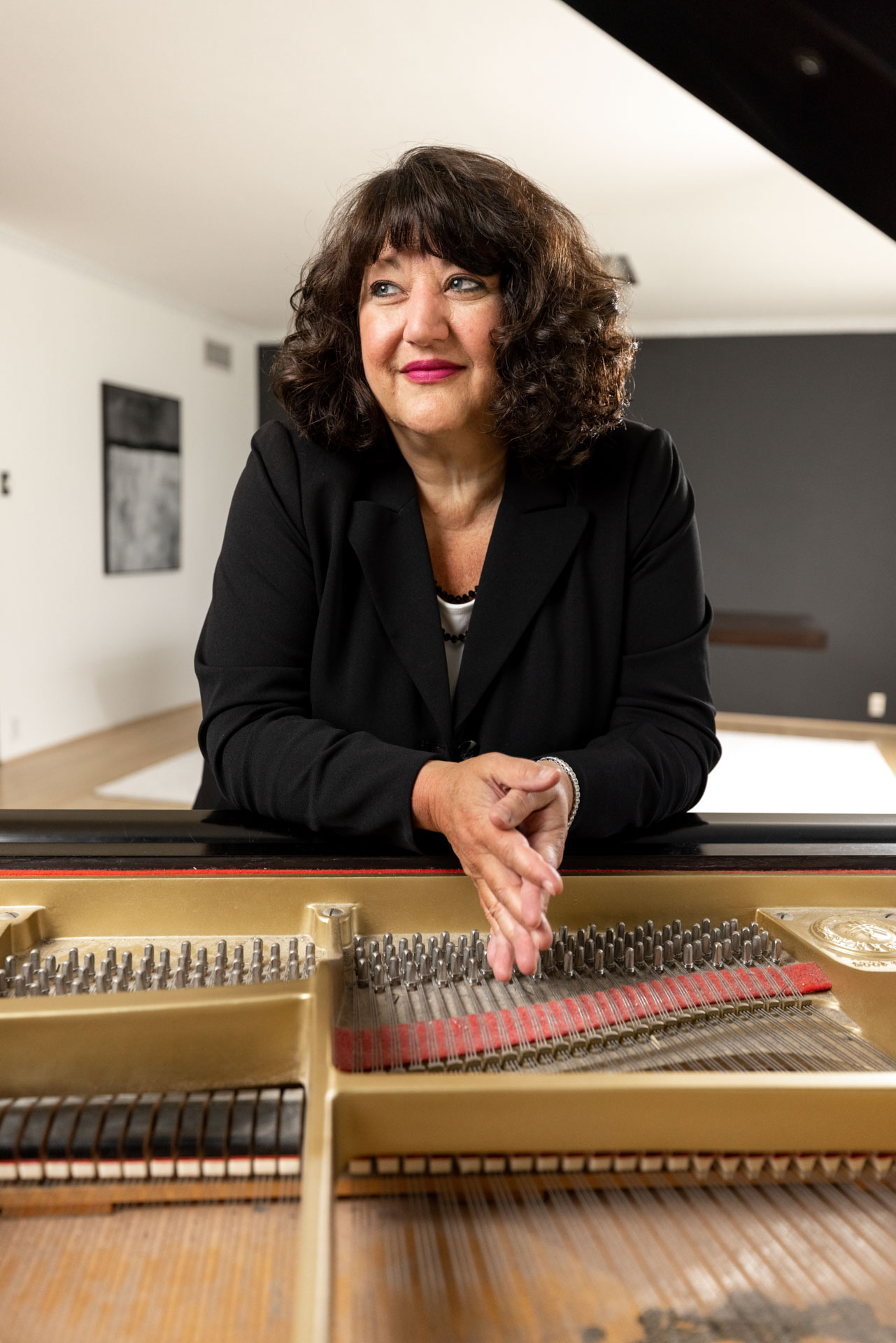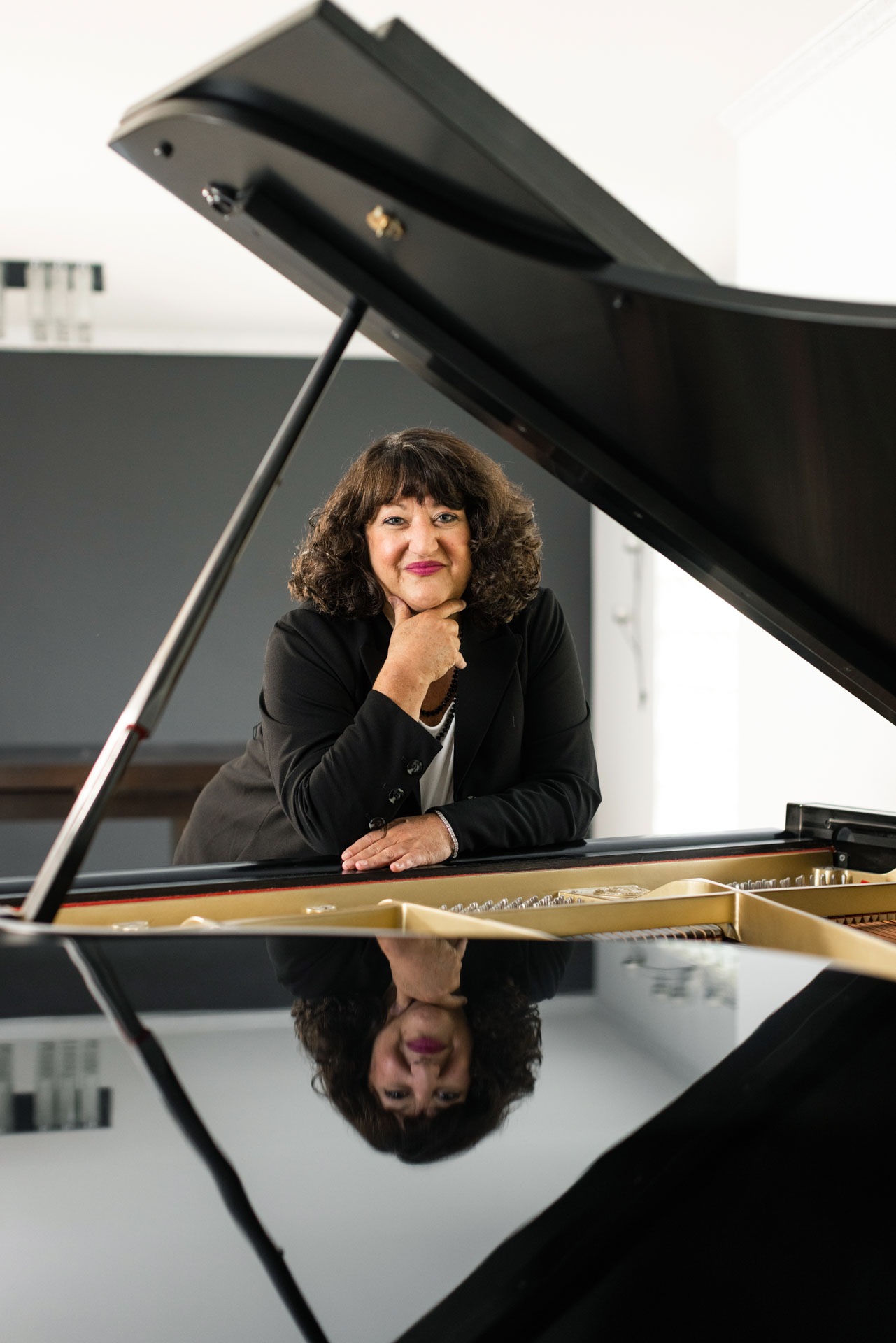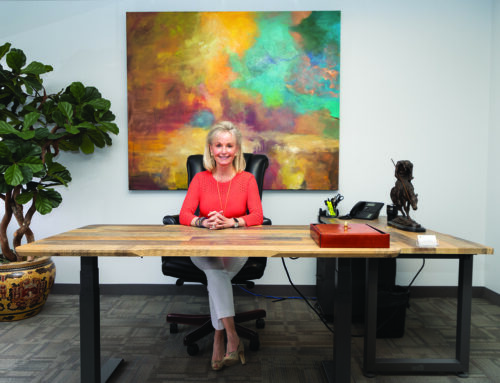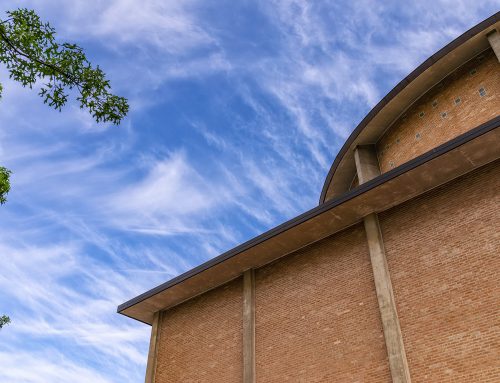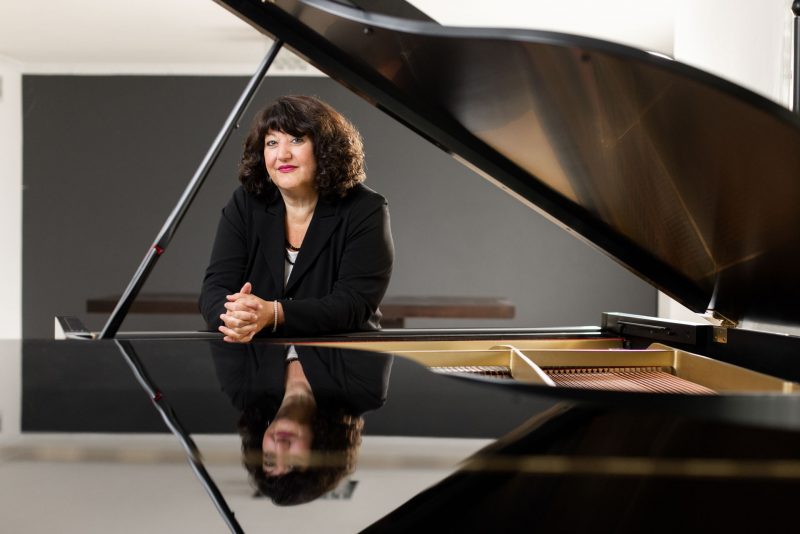
Patrice Koenig. Photography by Kathy Tran.
Once when Patrice Koenig was performing at a memory care facility, she noticed something happen in the audience. As soon as Koenig started playing “Maple Leaf Rag” on the piano, one of the residents came to life in her wheelchair and began making her doll dance to the music.
“After the program, (she) told me her mother used to play that piece,” Koenig says. “She was so excited to think about her mother again. That type of experience is just so heartwarming.”
Koenig, who lives in Preston Hollow, has been a performer for Texas Winds Musical Outreach for 26 years. The nonprofit provides free professional concerts to people at hospitals or nursing homes and memory care facilities. It also has a program for children at Head Start schools, where the musicians perform a story, demonstrate instruments and lead sing-alongs and musical games.
“This is just a really great introduction to music for pre-K kids, and it’s been a really successful program,” says Jane Escueta, a program director and violinist for Texas Winds.
Koenig is one of 70 professional musicians working with Texas Winds in Dallas-Fort Worth. Many of them have experience in orchestras or symphonies. Koenig started playing piano at 4 years old, pushed by her mother who was a piano teacher. She earned her bachelor’s and two master’s degrees in music at SMU. Then, she spent years traveling the world, performing with a cellist before settling permanently in Dallas. In the time she spends away from Texas Winds ensembles, Koenig teaches piano lessons and plays for Temple Emanu-El and White’s Chapel in Southlake. Before COVID-19, she had gigs at weddings and funerals.
Texas Winds was started in 1985 by Catherine Barr, who was married to a staff member at SMU. Koenig first played with a Bach chorale, and her involvement grew from there. Over the years, she’s played in ensembles with some combination of oboists, violinists, violists and cellists. About 21 Texas Winds ensembles play across Dallas, ranging from solos to a group of five, a brass quintet.
“When we bring a really high-level concert to them with professional players, they are just so appreciative,” Koenig says. “And the joy that it brings them is really what brings us the most joy. It is just amazing how big an impact it has in their lives.”
Though the pandemic limited the number of in-person concerts, it opened up the possibility for Zoom and virtual concerts. Musicians recorded at least 60 of them, each 15-20 minutes long, and published them on YouTube. Zoom allowed Texas Winds to reach larger audiences, especially children. At Parkland Children’s Medical Center, for example, the musicians can broadcast concerts using the in-house television network, enabling staff, children and their families to hear the music.
With grants and donations, Texas Winds is able to subsidize the cost of its concerts and prioritize facilities that lack an entertainment budget, Escueta says. But it’s not just about the music.
“We feel this is just as important an aspect of our mission, just that personal connection and letting people know that they’re cared for,” Escueta says. “And it’s nice to combine that with music.”


